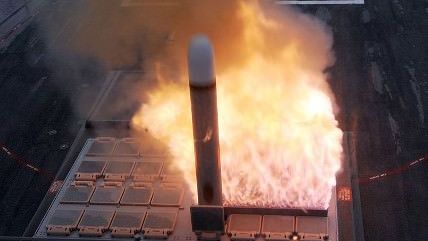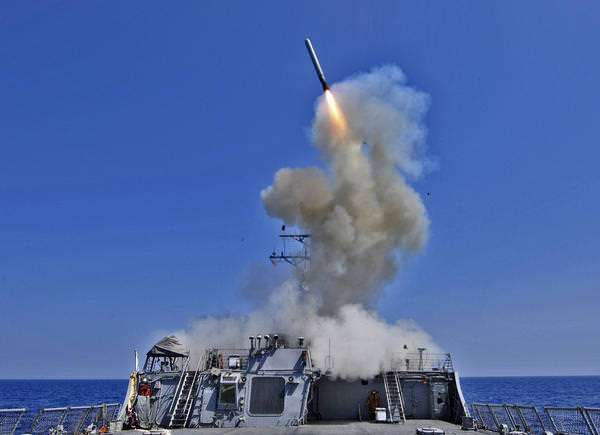Limited Strikes Won't Stop the Slaughter in Syria


It is looking increasingly likely that the U.S. and some of its allies will begin some sort of military intervention in Syria. Today, American officials said that an intervention in Syria could take place "as early as Thursday." Secretary of Defense Chuck Hagel has said that all of the military preparations are complete, and that all that remains is for Obama to give the order to strike for a military intervention to begin, which according to officials will almost certainly take the form of limited airstrikes.
The British Parliament is to be recalled on Thursday to discuss a response to last week's suspected chemical weapon attack, and the military has made plans for an intervention. French President Hollande said that France was ready "to punish" whoever is responsible for the attack.
Despite the increased chance of military intervention in Syria American officials have said that such an intervention will not seek to topple the Assad regime.
From UPI:
WASHINGTON, Aug. 27 (UPI) -- President Obama is likely to order a limited airstrike on Syria to punish it for using nerve gas but won't seek to topple the Assad regime, U.S. officials said.
Carrying out a military intervention in Syria to punish Assad for using chemical weapons will not stop the slaughter and could help the rebels, many of whom are fighting for the establishment of an Islamic state. Such a move will only serve to pressure Assad not to use a particular sort of weapon, which is suspected of causing the deaths of a small fraction of the total number of people killed in the Syrian civil war.
Syrian forces have demonstrated since the civil war began that they are capable of mass murder without the use of chemical weapons. If airstrikes do dissuade Syrian forces from using chemical weapons there is no reason to think that conventional weapons won't continue to be used to commit atrocities.
Syrian forces have already reportedly engaged in systematic rape and torture, as well as numerous massacres, none of which prompted the president to mention a "red line." Without chemical weapons, which United Nations inspectors have yet to confirm were used, Assad's forces will still be able to inflict misery on the Syrian people.
In the unlikely event that limited airstrikes do help the rebels in a significant way there is a chance that the more unpleasant elements of Assad's opposition could benefit, potentially prolonging the conflict.
The recent calls for intervention in Syria illustrate the strange special treatment given to chemical weapons in modern diplomacy and international law. The images of last week's suspected chemical attack are disturbing and tragic, but so are the photos and footage of the numerous other atrocities committed during the Syrian civil war which did not prompt the sort of reaction or condemnation we have seen in the last week.


Show Comments (37)